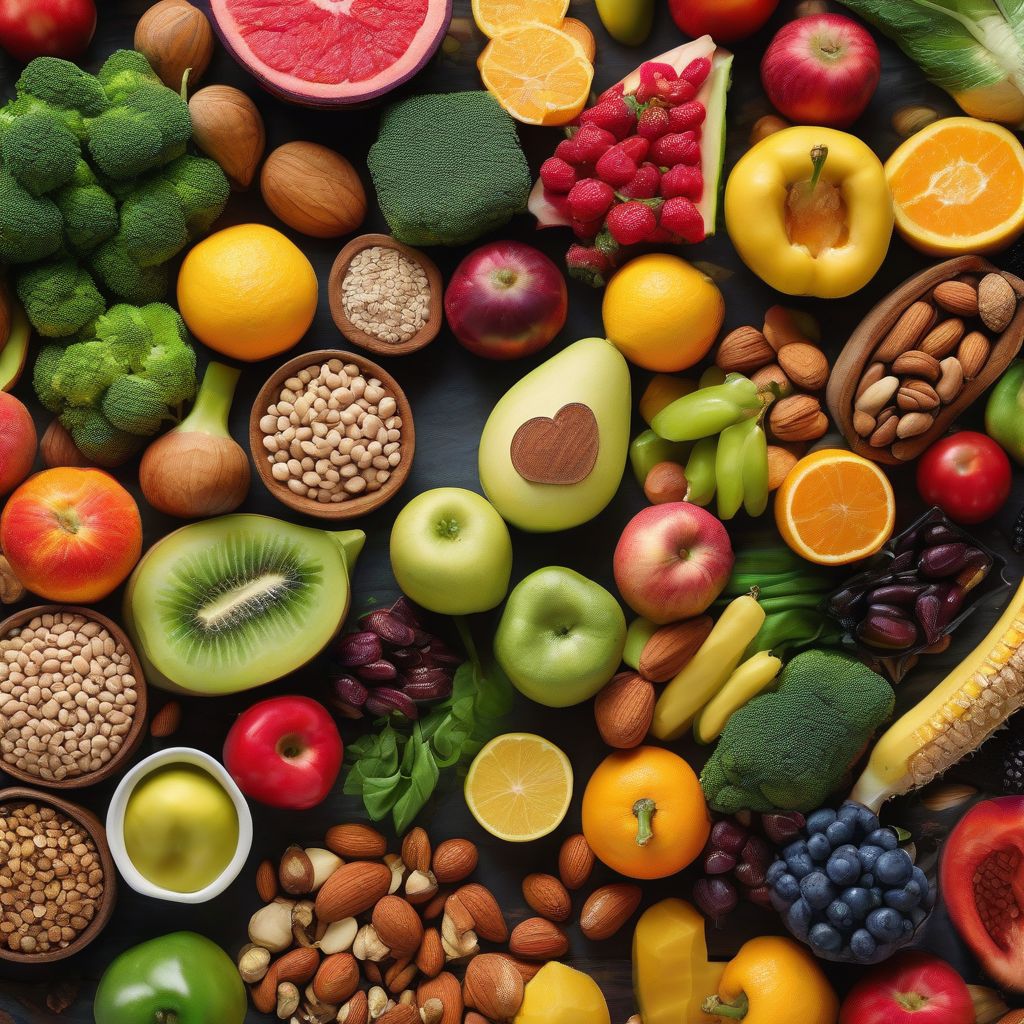Have you ever woken up from a dream feeling like you need to make a change for the better? Maybe it was a delicious dream about mountains of fresh fruits and vegetables, or perhaps you were feeling particularly energized after a jog in your dream. Whatever it was, that feeling of inspiration is real, and it’s often our bodies telling us to make healthier choices. One such choice that often comes up is adopting a plant-based diet, especially when cholesterol levels are a concern.
But how exactly do plant-based diets affect cholesterol, and is it really all good news? Let’s dive into the science behind plant-based eating and its impact on those little fatty molecules that can significantly impact our heart health.
Understanding Cholesterol: The Good, the Bad, and the Plant-Based
Before we explore the impact of plant-based diets on cholesterol, it’s important to understand what cholesterol is and why we need to keep it in check.
Cholesterol is a waxy, fat-like substance that’s crucial for our bodies to function properly. It helps build cells, produce hormones, and aids in digestion. However, like most things in life, balance is key.
We have two main types of cholesterol:
- LDL Cholesterol (Low-Density Lipoprotein): This is the “bad” cholesterol. High levels of LDL cholesterol can build up in your arteries, forming plaque and increasing your risk of heart disease.
- HDL Cholesterol (High-Density Lipoprotein): This is the “good” cholesterol. HDL cholesterol acts like a scavenger, picking up excess LDL cholesterol and transporting it back to your liver for removal.
So, where do plant-based diets fit into all of this?
Plant Power: How Plant-Based Diets Lower Cholesterol
Plant-based diets, which emphasize fruits, vegetables, legumes, whole grains, nuts, and seeds, are naturally low in cholesterol and saturated fat, the main culprits behind high LDL cholesterol levels.
Here’s how plant-based diets work their magic:
- Fiber Powerhouse: Plant-based foods are packed with fiber, especially soluble fiber. Soluble fiber acts like a sponge in your digestive system, binding to cholesterol and preventing it from being absorbed into your bloodstream.
- Saturated Fat Swap: Plant-based diets are naturally lower in saturated fat, a type of fat that raises LDL cholesterol levels. By swapping out saturated fat sources like fatty meats and full-fat dairy with plant-based alternatives, you can significantly reduce your intake.
- Unsaturated Fat Friends: Plant-based diets are rich in unsaturated fats, particularly monounsaturated and polyunsaturated fats. These healthy fats can help lower LDL cholesterol and raise HDL cholesterol, improving your overall cholesterol profile.
Scientific Evidence: What Does the Research Say?
Numerous studies have shown the positive effects of plant-based diets on cholesterol levels.
- A study published in the Journal of the American College of Nutrition found that a plant-based diet significantly reduced LDL cholesterol levels in adults with high cholesterol.
- Another study in JAMA found that individuals following a vegetarian diet had lower LDL cholesterol levels compared to those on a non-vegetarian diet.
- Research has also shown that plant-based diets can improve other risk factors for heart disease, such as blood pressure and blood sugar control.
 Plant-Based Foods For Lowering Cholesterol
Plant-Based Foods For Lowering Cholesterol
Beyond Cholesterol: Additional Benefits of Plant-Based Eating
While the impact of plant-based diets on cholesterol levels is significant, the benefits go far beyond just heart health.
- Weight Management: Plant-based diets are generally lower in calories and higher in fiber, which can promote feelings of fullness and aid in weight management.
- Gut Health: The fiber in plant-based foods acts as a prebiotic, feeding the beneficial bacteria in your gut and promoting a healthy gut microbiome.
- Reduced Risk of Chronic Diseases: Studies have linked plant-based diets to a lower risk of developing type 2 diabetes, certain types of cancer, and other chronic diseases.
Plant-Based Diets and Cholesterol: Addressing Common Concerns
While the benefits of plant-based diets are undeniable, some common questions and concerns often arise.
Can I still enjoy my favorite foods on a plant-based diet?
Absolutely! One of the beauties of plant-based eating is its versatility. You can find delicious and satisfying plant-based alternatives for almost any dish. From veggie burgers to plant-based milk and cheese alternatives, there are endless possibilities to explore.
Will I get enough protein on a plant-based diet?
Many people worry about protein intake on a plant-based diet, but it’s entirely possible to meet your protein needs through plant sources. Legumes, tofu, tempeh, edamame, nuts, seeds, and whole grains are all excellent sources of plant-based protein.
Do I need to go completely plant-based to see benefits?
You don’t have to adopt a strict vegan diet to reap the benefits of plant-based eating. Even making small changes, such as incorporating more plant-based meals into your week, can make a positive difference in your cholesterol levels and overall health.
Conclusion: Embrace the Power of Plants for a Healthier Heart and Body
The evidence is clear: plant-based diets can significantly impact cholesterol levels, promoting heart health and overall well-being. By embracing a diet rich in fruits, vegetables, legumes, and whole grains, you can naturally lower your LDL cholesterol, increase your HDL cholesterol, and reduce your risk of heart disease.
Remember, adopting a plant-based lifestyle doesn’t have to be an all-or-nothing approach. Start by incorporating more plant-based meals into your week, experiment with new recipes, and find what works best for you. Your heart (and taste buds) will thank you!
[amazon bestseller=”plant-based cookbook”]
